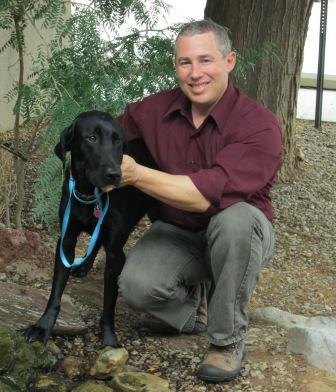
Knowing when and how to say goodbye
I often have clients tell me, “I was going to be a veterinarian, but—” followed by any number of reasons. One of the most common is, “I couldn’t euthanize someone’s pet. That has to be just horrible.”
Well, they are right. It is the worst part of my job, for sure. But it’s not that simple. Saying goodbye to one of our animal friends, no matter how big or small, is very difficult, and every doctor deals with it in his or her own way. It affects the whole hospital, because we all get attached to our patients. But how do we know when it’s time to say goodbye?
Sometimes it’s easy—in the face of severe trauma, cancer, or obvious suffering, we know it’s time. But what if things aren’t so obvious?
Veterinarians spend a good amount of time talking to our clients about this. Most of us don’t mind—it’s part of the job. We want to make sure you are making the decision to help your pet die peacefully and quickly, with all the information possible. Rarely is it the perfect time, and rarely is it without guilt of some kind.
With elderly or ill pets, we all wish we could wake up one morning to find they’ve passed in their sleep, in their beds, quietly and peacefully, maybe dreaming of their favorite toy or that perfect hike we used to take. It usually doesn’t happen that way. More often than not, they have an illness or chronic debilitating condition that we treat for some time. Slowly the symptoms get worse, and one day we realize our beloved family member is in trouble.
When I talk to clients at this stage, I use the term “quality of life” a lot. I want owners to look back and think about their pet’s quality of life. There are some “objective” ways to evaluate this, “objective” in quotation marks because everyone’s list will be a bit different. It is not perfectly objective, in other words, but I think you’ll see what I’m getting at.
- Does the animal have more good days than bad days?
- Does he still enjoy interacting with the family, even if it’s just to be petted and maybe sleep at your feet?
- Does she enjoy lying in the sun, going outside on beautiful days, maybe even going for short walks?
- Is he still eating and drinking on his own? (Being hand-fed may not be the quality of life we are looking for.) Can she hold the food down without vomiting on a regular basis?
- Can he get up and do his business without lying in it?
Once we have come to the decision that it is time, there are forms to be signed and questions to be asked, unfortunately. You may have the option of having a practitioner come to your house—if not, then you will have to bring your pet to the hospital. Having to make that decision on the spur of the moment is terrible, because if it is late at night or on a weekend, you may have to go to an emergency hospital, which may be a new place for all of you.
Do you want to be present? Do you need the doctor to explain the process? How much time would you like to spend with your pet before the final injection? At some point, you will have to decide what you want to do with the body.
Saying goodbye to a beloved family member is hard on all of us. But I know that the love and compassion we hold for them helps ease their distress and suffering on that final journey. Our animal companions all deserve to move on in peace and without pain—in our arms for one last hug.
Daniel Levenson operates the Southwest Veterinary Medical Center at the south end of Corrales Road. Visit his website for more information.
